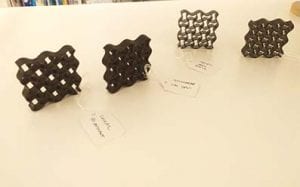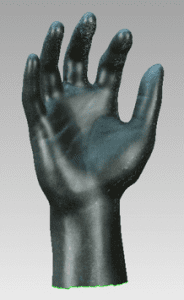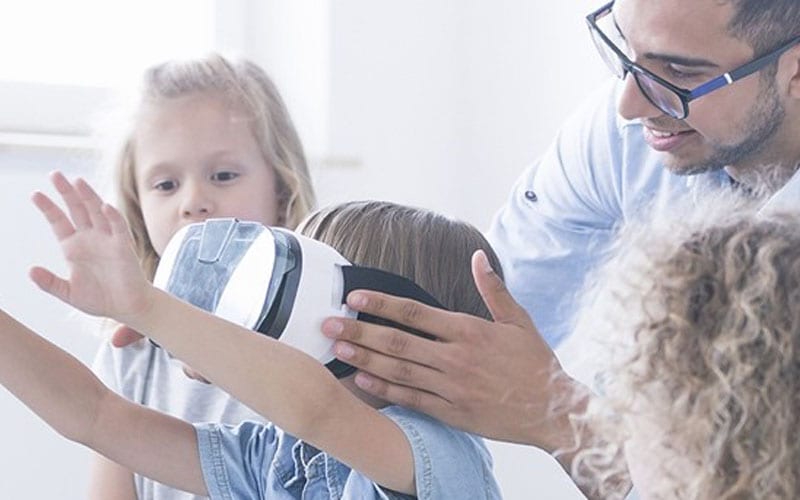4th March 2020
The EU-funded H2020 PRIME-VR2 3-year project aims to develop a state-of-art digital environment for VR rehabilitation at home and in clinic through a virtual gaming space that will provide effective therapy and friendly competition. It will be a significant innovation for people with neuromotor disability such as stroke and cerebral palsy; and sports injuries.
The Consortium includes 14 institutions in Italy, United Kingdom, Malta, Finland, Hungary, Netherlands, Ireland, Greece, and Cyprus.
 The PRIME-VR2 team is multi-disciplinary. It includes expertise in virtual reality, additive manufacturing, 3D geometrical form generation, user experience design, user-centred design, electronics design, systems integration and rehabilitation.
The PRIME-VR2 team is multi-disciplinary. It includes expertise in virtual reality, additive manufacturing, 3D geometrical form generation, user experience design, user-centred design, electronics design, systems integration and rehabilitation.

The VRHAB-IT platform being developed will focus on supporting the development of functional motor skills in the upper body; with arm, hand and finger movements. The VR environment will be customised with adaptive controllers which will be co-created with users according to their ability and condition. Living Labs to test the technology with users will be taking place in London, Malta and Cyprus.
The results from PRIME-VR2 will be a great step forward for European interactive technology in improving physical health and performance.
Quotes
The project coordinator, Sandro Barone, full professor at the University of Pisa said:
‘I am honoured to be the coordinator of the PRIME-VR2 project, which has the ambitious goal of developing novel VR environment and interaction devices for upper limb motor rehabilitation. The project has a high value in the medical and social sector, and in the technological one as well. There will be many innovations in the areas of VR technologies, engineering, materials and design. Thanks to the project, the rehabilitation centers will have innovative digital instruments available for their patients’ rehabilitation, and patients will benefit from those as they will get more effective, entertaining and motivating therapies, and the recovery of the upper limb functionality will be faster.’
Dr. Tim Adlam, Associate Professor at Global Disability Innovation Hub said:
‘GDI Hub is excited to be a part of the EU-funded PRIME VR2 project, bringing together innovations in rehabilitation, virtual reality, manufacturing, gaming and design for the benefit of people with disabilities and sports injuries. Working with our European partners, we are leading the engagement with disabled people and rehabilitation patients to ensure that the technology we create is useful, usable and engaging.’
Dr. Andrew Wodehouse, Senior Lecturer, Department of Design, Manufacturing and Engineering Management at University of Strathclyde said:
‘As part of the PRIME-VR2 EU-funded project, the University of Strathclyde is contributing to the development of novel controller that will facilitate customised access to the VR environment. The project brings together a diverse range of expertise in the delivery of a digital rehabilitation platform, and we are looking forward to working with our partners in this ambitious collaboration.’
Flying Squirrel Games said:
‘Flying Squirrel Games is a proud member of the Prime-VR2 consortium supporting the PRIME-VR2 team with their expertise in game development in a virtual reality environment.’ Flying Squirrel Games.
Inlecom said:
‘Inlecom is dedicated to delivering commercial success and sustainable benefits from the groundbreaking research that is being carried out in PRIME-VR2. Building on 25years+ experience supporting commercial spin-offs and successful patent filing, Inlecom is excited to be leading the partnership to deliver strong and credible scientific, commercial, societal and IP results.’
UCL Computer Science said:
‘As a group that has had a long interest in virtual reality interface technologies, we are very pleased to be able to work within Prime-VR2 to bring applications of virtual reality to people with disabilities and sports injuries. For us, these applications are important challenge as it is making us rethink the way the hardware and software is constructed in order to better enable broad access to virtual reality.’
Prof. Ing. Philip Farrugia, Associate Professor, Department of Industrial and Manufacturing Engineering at University of Malta said:
‘The University of Malta is very proud to form part of a strong multidisciplinary consortium composed of academic institutions, SMEs and living labs, with the ultimate goal of developing an innovative rehabilitation device and supporting platform. The PRIME-VR2 project will help us to expand our expertise on Design for Assembly and Manufacture since innovative controllers for rehabilitation pose a number of unique challenges to meet relevant standards.’
Michael Browne, Director at Crowdhelix said:
‘Crowdhelix is delighted to be a partner in the EU-funded PRIME-VR2 Consortium. It is our role to build an impact driven virtual community populated by world leading experts in Virtual Reality and Rehabilitation related fields of research, development and innovation. We are excited to be part of delivering that impact as it creates real world results that benefit and improve the lives of patients on a global scale.’
Information for editors:
PRIME-VR2 project is funded by the European Commission as part of Horizon 2020. The project aims to develop a state-of-art digital environment for VR rehabilitation at home through a virtual gaming space that will provide proper stimulation and friendly competition.
Partners:
University of Pisa, University of Strathclyde, University of Malta, University of Oulu, University College London, Loud1design, Kerubiel, Flying Squirrel Games, Capitola Digital, Crowdhelix, Inlecom Innovation, Saint James Hospital, Nicomed Rehabilitation Centre and Global Disability Innovation Hub.
 Find out more at:
Find out more at:
http://prime-vr2.eu/
Twitter: https://twitter.com/primevr2


